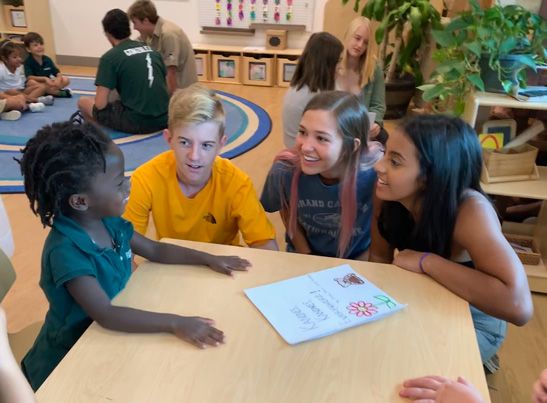

Listen
Source/Author: Mike Murphy, Headmaster
November 08, 2019
Listen.
Listen carefully.
Good listeners are able to restate what others are saying. They're not simply waiting for their turn to talk. I cannot recall if I first learned this lesson in high school or college, but this is not a new lesson though it has remained with me and guided how I behave and understand others. Maybe now more than ever, the ability to truly listen is critical for leaders and good citizens.
Good parents learn to listen to their children and know when the words being used are signals for other feelings. Many parents know that when a child says, “I have a tummy ache,” while in route to school, could indicate some level of anxiety about going to school that day.
We cannot learn the code language used by our children unless we listen to them.
The same goes for adults. For example, when a parent/guardian expresses concerns to me about a counselor, teacher or coach, I have learned to find out what is making the parent/guardian nervous. Is there a concern that the child may not get into the college of her dreams? Is it possible that a child may not get an A, a starting position, or the lead role? Or is it possible that someone is not meeting expectations?
We need to know the real issue before we can resolve a fear or an authentic problem.
Repeating and confirming a question before answering can save time and minimize confusion. Similarly, asking questions before drawing conclusions can help mitigate misunderstandings and offer some clarity around concerns.
For example, if someone were to say, “That coach is terrible!” one could respond by asking if the concerned person has met with the coach. Pressing further, I'd want to know, "What kinds of questions did you or would you ask the coach during a meeting?"
Once people start asking questions there is a good chance they might work together for a solution. A question typically elicits a response, which begins an exchange. If both parties are interested in improvement they will listen to each other and find ways to address concerns.
When one asks a question with sincerity, listening must follow.
Another key lesson I've learned about listening is that every question does not need to be answered. In some cases, the best response is to send the person to find the answer or for everyone to take some time to think about the question and then get back together. In other cases, the statement, “I do not know, but I will try to find out and get back to you,” is the best we can do.
Great listeners use more than their ears and brains. Great listeners use lessons learned, experiences and their hearts so they can get to the essence of the issues, thoughts and ideas being presented to them. Great listeners care about the people with whom they are meeting.
Cheers!
Mike
























